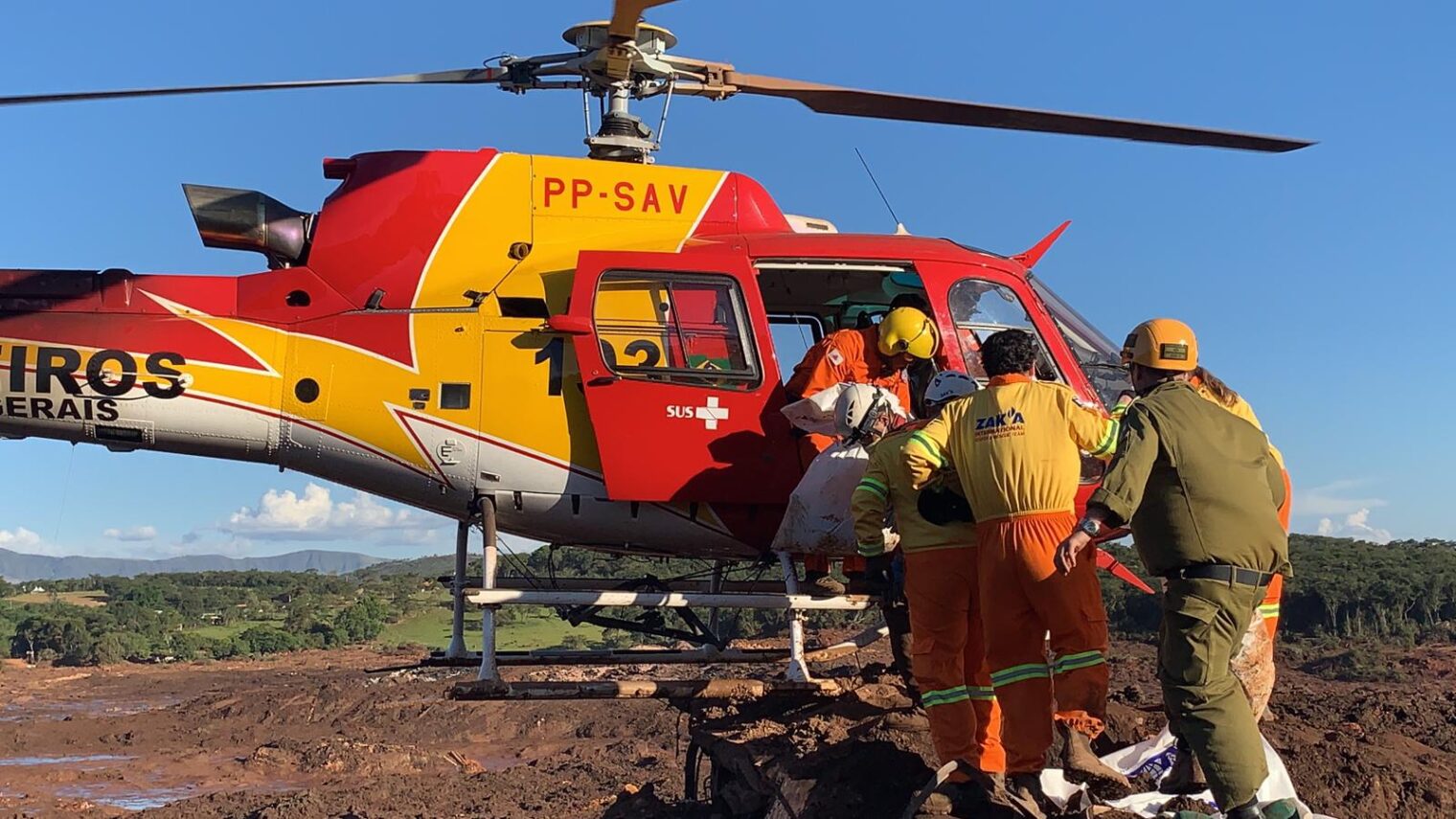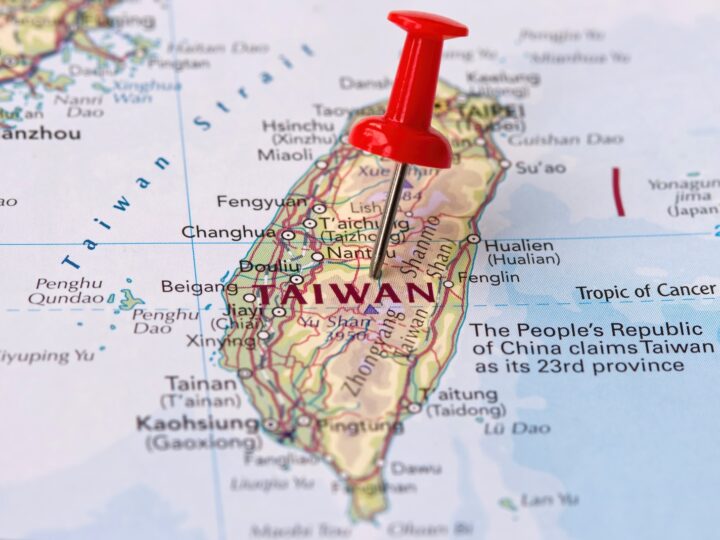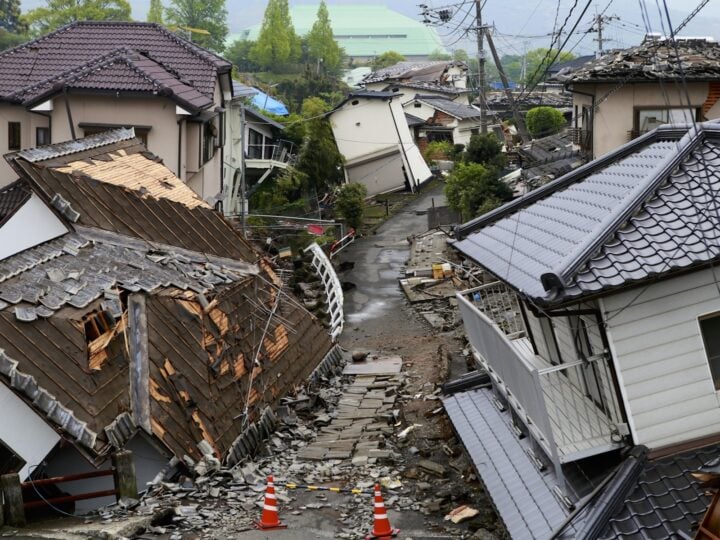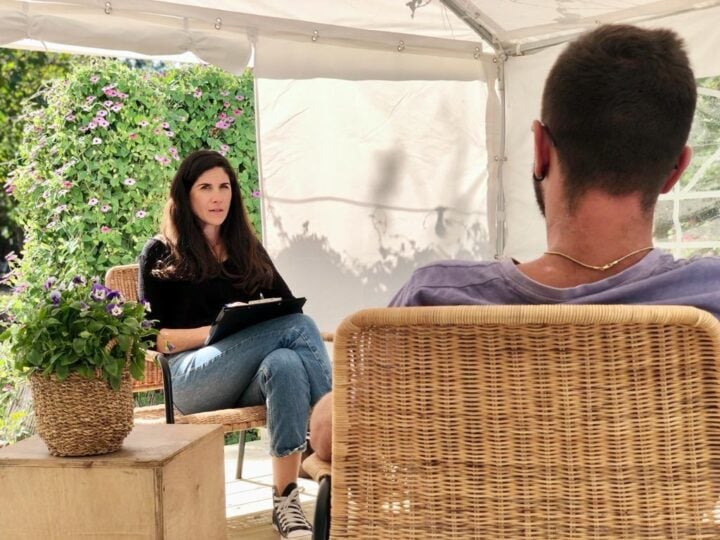On July 6, 1989, 30-year-old ultra-Orthodox Jerusalem resident Yehuda Meshi-Zahav heard an explosion and screams coming from a bus driven into a ravine by a terrorist.
He didn’t know first aid. Nevertheless, he and some friends rushed to help.
The grim task they set for themselves was to collect body parts and blood for burial in accordance with Jewish tradition. No formal organization existed to do this sacred work.
That horrifying scene led to Meshi-Zahav’s founding of ZAKA (a Hebrew acronym for Disaster Victims Identification) in 1995. The scope of the organization has since grown much broader.
Today, thousands of trained ZAKA Search & Rescue volunteers from all sectors of Israeli society perform lifesaving activities – as well as body-part retrieval — following terror attacks, accidents or disasters on land and sea.
And not only in Israel.
As a UN-recognized international volunteer humanitarian organization, ZAKA’s International Rescue Unit works in cooperation with Israel’s Foreign Ministry and military to respond to disasters worldwide.
49 ZAKA units operating globally
ZAKA has (so far) trained 49 volunteer groups in countries across the world to be ready in case of nearby mass-casualty incidents. The newest unit was set up in Odessa last October.
Now there are ambitious plans to train groups in key Western cities, according to Edward Mermelstein, president of the two-year-old ZAKA Search & Rescue USA, based in New York.
“ZAKA’s ability to respond as fast as possible can be enhanced only through establishing autonomous ‘operations hubs’ in strategic locations in the United States, Brazil, Mexico, Canada, the Caribbean and elsewhere,” Mermelstein tells ISRAEL21c.
“Nothing can stop us. We’ll get there by plane or by boat in order to help others. And wherever we go, we show the beautiful face of the state of Israel and the people of Israel.”
“There seems to be a significant uptick in major disasters in South America and the Caribbean, and we want to be as close to those areas as possible,” Mermelstein says.
“The UN recognition of ZAKA allows us entrée into countries where normally we could have logistical issues and gives us the ability to respond with any country that is a member of INSARAG,” the United Nations International Search and Rescue Advisory Group.
ZAKA USA raised funds to bring trainers from Israel to prepare a group to serve the greater New York area in the coming months. “And we have identified other metro areas that want to bring ZAKA trainers in,” says Mermelstein.
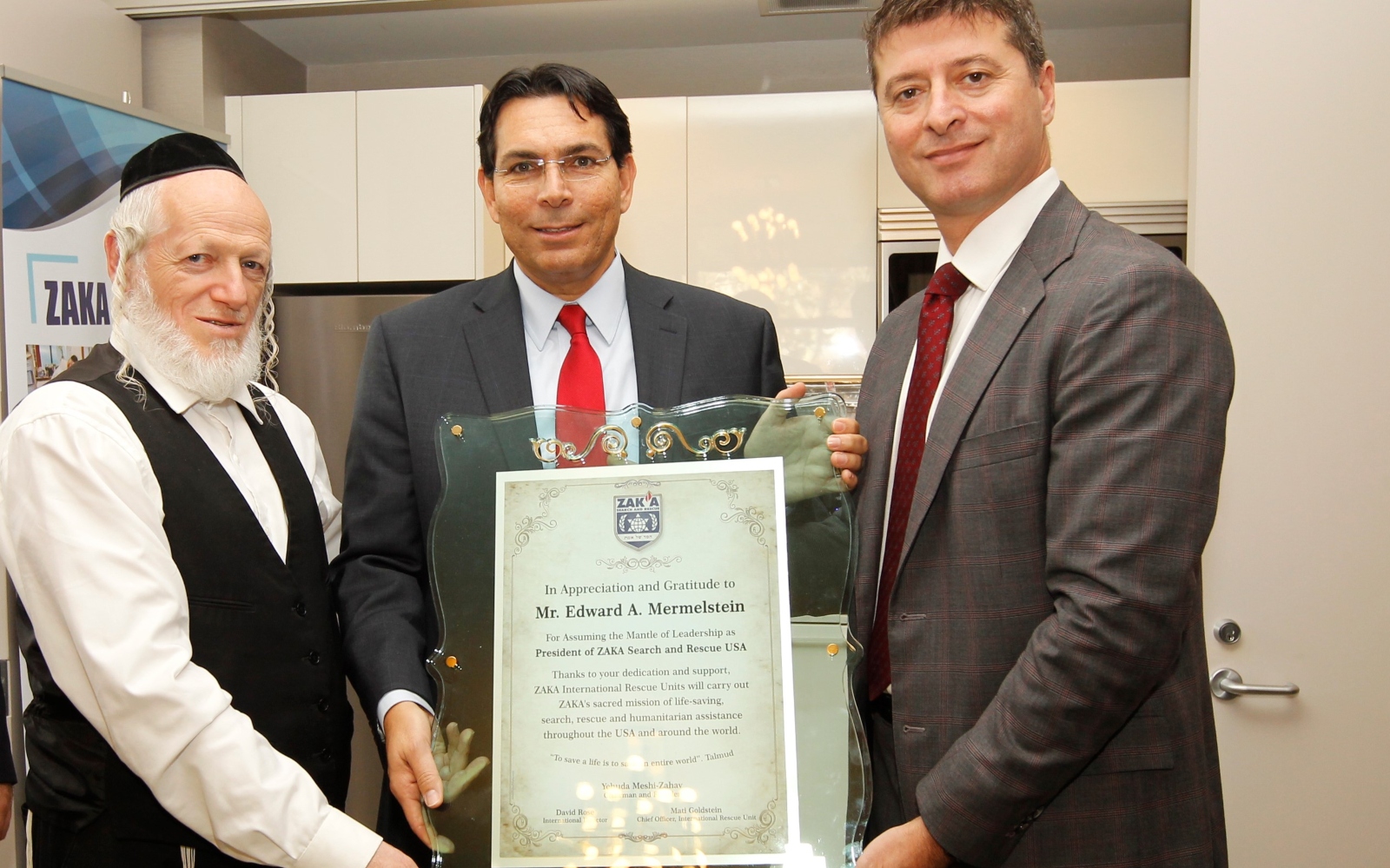
‘We’re a heart and a soul’
“The core of ZAKA is volunteering without borders – any time of day, in all kinds of difficult conditions, after any disaster – to give first aid, to rescue the living and to respectfully gather the remains of the dead, in Israel and overseas,” ZAKA Chairman Yehuda Meshi-Zahav tells ISRAEL21c.
“It makes no difference if the victims are Jewish or non-Jewish. We have more than 3,500 people [in Israel alone] willing to risk their lives to respond to events happening in all corners of the world,” he says.
“We are always striving to improve our logistics and response time. Nothing can stop us. We’ll get there by plane or by boat in order to help others. And wherever we go, we show the beautiful face of the state of Israel and the people of Israel. We are not a machine; we’re a heart and a soul.”
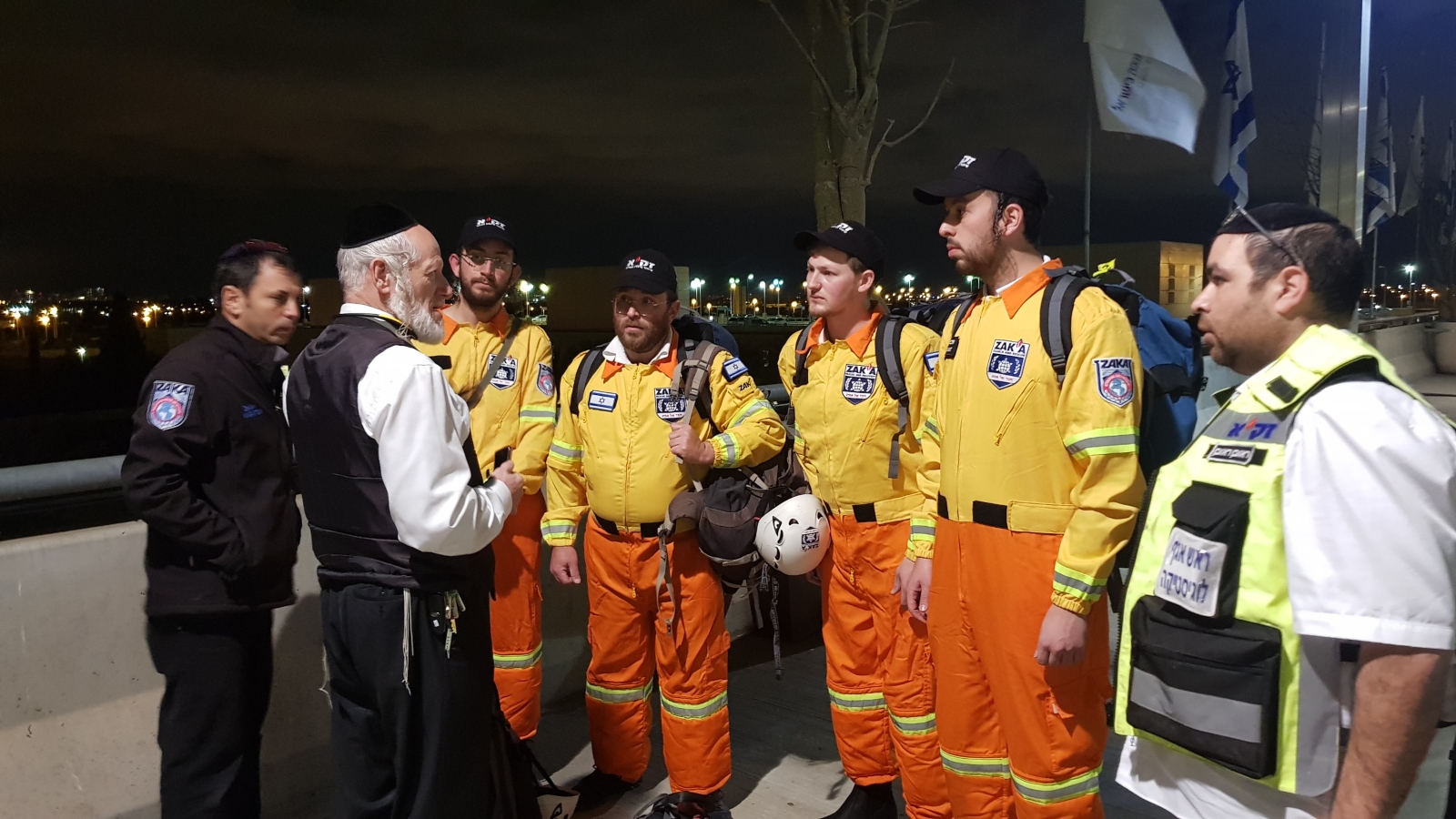
In 2005, the year ZAKA received UN recognition, volunteers aided in relief efforts in the United States following Hurricane Katrina and in southeast Asia after a catastrophic tsunami.
ZAKA teams rushed to the scene of the deadly earthquake in Haiti in January 2010; to Japan after the 2011 earthquake and tsunami; and to the Philippines in the wake of the 2013 typhoon.
In 2015, ZAKA volunteers flew to Paris following a deadly terror attack, to the French Alps after the Germanwings plane crash and to Nepal in the wake of a devastating earthquake that killed and injured thousands.
Official advisory status
In January 2016, the UN Committee on NGOs granted official advisory status to ZAKA, giving the volunteer organization the opportunity to take part in official UN discussions and conferences in its area of expertise.
Ten months later, ZAKA participated in its first NATO international search, rescue and recovery exercise, held in Montenegro.
Meanwhile, work at real disaster scenes has never ceased.
In 2017, ZAKA was on the scene after mass catastrophes in Texas, Florida, Mexico and Haiti; and in 2018 after the synagogue shooting in Pittsburgh.
Shay Salmon, a leader of the 45-person ZAKA unit trained in Guatemala in 2018, received the Ambassador of Peace Award from Guatemala’s government for his unit’s assistance following a powerful volcano just five months after the training was completed.
In 2019, ZAKA assisted in finding bodies in the Brazilian dam collapse and the Ethiopian plane crash.
For interested volunteers
ZAKA USA works in coordination with the US National Guard and Federal Emergency Management Agency (FEMA). Trained volunteers could also respond together with their Israeli counterparts in coordination with the Israeli Defense Forces on humanitarian missions across the globe.
“We see ZAKA as a long overdue but now proven solution to a substantive public-health problem, especially for developing nations in the throes of a natural or manmade disaster,” says Mermelstein.
Volunteers, who do not have to be Jewish, mainly come from the first-responder community — EMTs, police and firefighters and medical personnel.
However, says Mermelstein, the main requirement for volunteers is simply “to be strong and in good health because much of the work involves the ability to lift heavy objects and use heavy equipment to extract people trapped under buildings or in water situations. It’s a bonus if they have medical training as well.”
For information on volunteering, email volunteer@zakaworld.org or click here. Monetary donations can be made on the website too.




